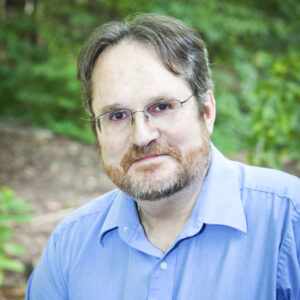
Kevin Keenan, PhD
Core Faculty
Office phone: 248.476.1122, ext. 115
E-mail: [email protected]
Dr. Keenan earned his Bachelor of Arts in Psychology from the University of Maryland, a Masters and PhD in Clinical Psychology from the University of Kentucky. He was a National Institute of Mental Health fellow and a post-doctoral fellow of the Detroit Psychiatric Institute. As a core faculty member, Dr. Keenan shares in the responsibility of maintaining the integrity of the academic programs of MSP.
He has a private practice in Farmington Hills, Michigan and is on the adjunct professional staff at St. John Hospital and Medical Center and the Oakwood Hospitals. Dr. Keenan is a Fellow of the Michigan Psychological Association (MPA) and a former chair of MPA’s e-committee on electronic and internet issues in the practice of psychology. He is a recipient of MPA’s Beth Clark Service Award. Dr. Keenan is an associate editor for the Journal of Humanistic Psychology, co-editor for the Newsletter of APA’s Division 32, the Society for Humanistic Psychology, editor of the SHP website and is on the SHP Executive Board currently serving a three year term as treasurer. Dr Keenan recently co-edited the 2nd edition of Humanistic Psychotherapies: Handbook of Research and Practice to which he also contributed a chapter entitled, “The Good Therapist: Evidence for the Essential Qualities of the Effective Therapist.”
Dr. Keenan has previously held positions at Henry Ford Hospital, Madonna University, Union Institute & University and the University of Kentucky Medical Center. Dr. Keenan has special interests in recovery, ethics, spirituality, lifespan development, counseling and psychotherapy, psychological testing, and in mixed models of qualitative and quantitative research. Currently he teaches course in statistics, psychometrics, quantitative research, supervision and a dissertation preparation course that leads students through the process of conducting a pilot study.
Education
- PhD in Clinical Psychology, University of Kentucky
- MS in Clinical Psychology, University of Kentucky
- BA in Psychology, University of Maryland
Licensure
- Licensed Psychologist – Michigan
Areas of Expertise/Interests
- Recovery
- Spirituality
- Ethics
- Lifespan development
- Counseling and psychotherapy
- Supervision
- Psychological testing
- Integration of qualitative and quantitative research.
Select Presentations
Keenan, K. (2012a, March). The varieties of religious experience: new perspectives on religious diversity (Chair). Symposium conducted at the meeting of the Society for Humanistic Psychology, Pittsburgh, PA.
Keenan, K. (2012b, March). Therapeutic enactments. In K. Keenan (Chair) Two experiential techniques to facilitate clinical learning. Workshop conducted at the meeting of the Society for Humanistic Psychology, Pittsburgh, PA.
Keenan (2012c, March). Resolving narcissism. In B.R. Robbins (Chair), Existential themes in “Groundhog Day.” Symposium conducted at the meeting of the Society for Humanistic Psychology, Pittsburgh, PA.
Keenan, K. (2012d, August). Faith in science: perspectives on evidence-based practice from humanistic and depth psychology. In S. Rubin (Chair), Evidence in support of Existential-Humanistic Psychology: Revitalizing the “Third Force.” Symposium conducted at the meeting of the American Psychological Association, Orlando, FL.
Keenan, K. (2012e, August). Teaching evidence-based practice with evidence-based supervision. Presentation conducted at the Division 32 hospitality suite during the meeting of the American Psychological Association, Orlando, FL.
Professional Memberships
- Member, American Psychological Association
- Executive Board Member, Society for Humanistic Psychology, Division 32
- Fellow, Michigan Psychological Association
Q&A
- Why did you choose to enter the field of psychology?
I was initially inspired by my Intro Psych Professor who was a fabulous teacher and a fascinating human being. Subsequently I fell in love with academic psychology which provided me with tools to understand myself and the world around me. As an undergraduate, I worked in two fairly sophisticated mental hospitals which propelled my interest to do graduate work so that I could practice as a clinical psychologist.
- Please describe your teaching philosophy.
The primary goals of teaching are to provide a knowledge base in the foundational areas of clinical psychology, critical skills in thinking, research and practice and appropriate attitudes towards science and people, i.e. human science. Of the three areas, I believe attitude is most important; as it is the motivational force that drives the acquisition and application of knowledge and skills. Students’ formation as practitioner-scholars and their development of scientific attitudes (curiosity, openness to experience, critical thinking and experimentation in its broadest sense) only makes sense in clinical psychology when integrated with human values.
A second teaching goal is to find creative ways in assisting students with integrating and incorporating class material in their work with clients. A third teaching goal is to encourage students to become self-aware of their own biases and proclivities that may impact and inform their work with clients.
